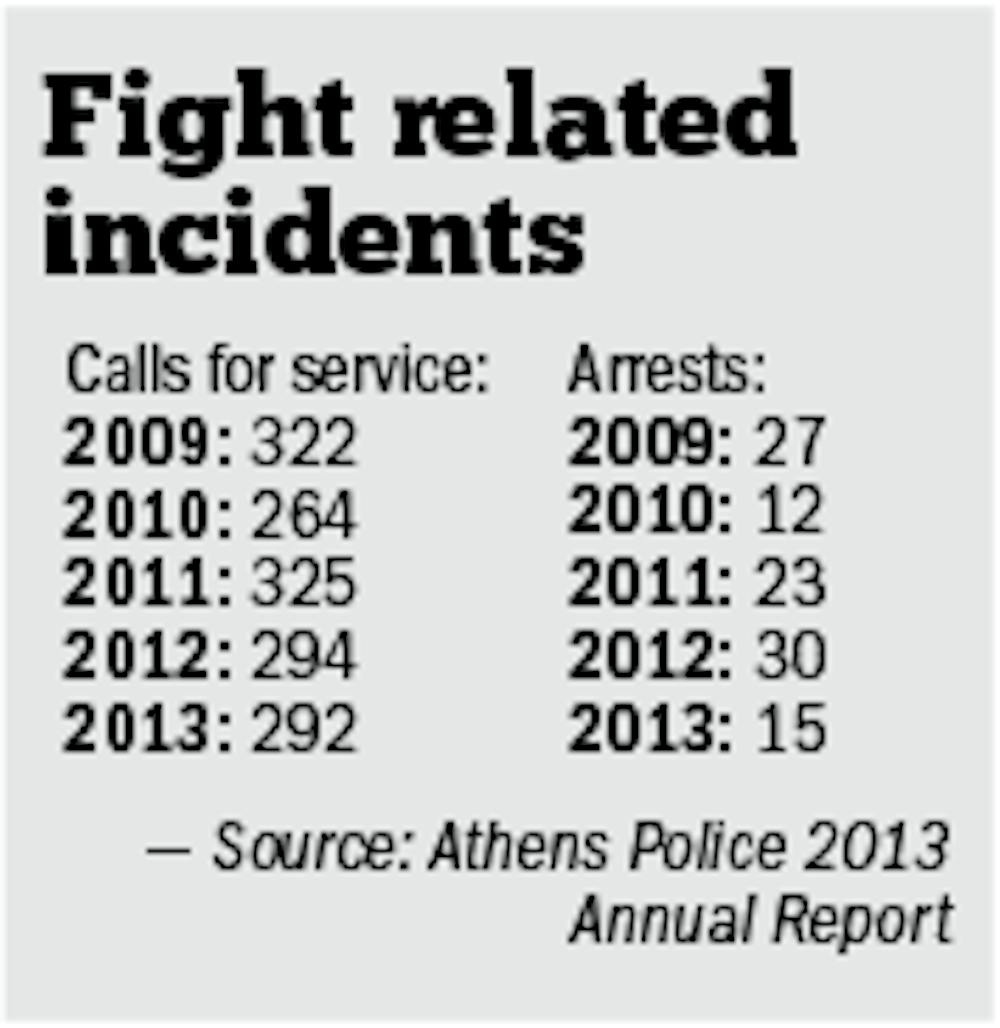Whether it is drunken bar patrons introducing one another to their knuckles or members of rival organizations hashing out problems outside a house party, Athens Police are accustomed to dealing with all kinds of brawls.
Last year, Athens Police responded to 292 calls for service involving fighting, which resulted in 15 arrests. Between 2009-2013, the department has averaged approximately 300 calls for service, as well as about 21 arrests, per year.
Athens Police Chief Tom Pyle said it is not uncommon for the department to deal with fights that include five or more combatants.
“They have peaks and valleys just as any other call, but, uptown, you can pretty much guarantee that we’ll get a fight or a melee involving numerous people or one organization against another,” he said. “I shouldn’t say every weekend, but it’s not uncommon.”
When officers respond to the scene of such an incident, Pyle said they take care of urgent priorities first.
“If we arrive and there are people actually engaged in a fight or some sort of combative behavior, we would break it up,” Pyle said. “And then, just like any other thing, we investigate it.”
Officers attempt to figure out whether it is a fight, assault or even a case of domestic violence.
“We talk to people involved, or at least people who witnessed it, and find out what the consensus is,” Pyle said. “And, nine times out of 10, we get a pretty accurate description from witnesses about what took place.”
However, Lt. Jeff McCall said police cannot establish a strict or standard protocol when it comes to controlling violent situations, as each situation varies greatly from another, and added that officers consider all factors before applying force.
“Calls involving violence are not static situations, but rather dynamic and officers will have to either escalate or de-escalate their response accordingly,” McCall said. “Looking back at my time on the street, very seldom do officers arrive and the individuals are still involved in a physical altercation. More often than not, officers inquire and determine the individuals had left the area.”
Ohio University Police Chief Andrew Powers said his department has not had to deal with any large-scale, significant fights on campus in recent years.
“We have drunks who get into fights from time to time, but no major, organized fights,” Powers said. “In the past, we have had fights on campus involving multiple people, but we have always managed to gain control of the situation through the use of traditional techniques.”
He added all OUPD officers receive crowd control training, and can use riot gear if the situation calls for its implementation. Powers said the only occasion when OUPD has used riot gear during his tenure has been at the fests.
McCall added officers have a wide range of options for dealing with combatants they are able to confront, which include arresting them for assault, citing them for disorderly conduct or public intoxication or simply sending the parties their separate ways.
This article originally appeared in print under the headline "Athens police used to fights"
@akarl_smith
as299810@ohiou.edu






